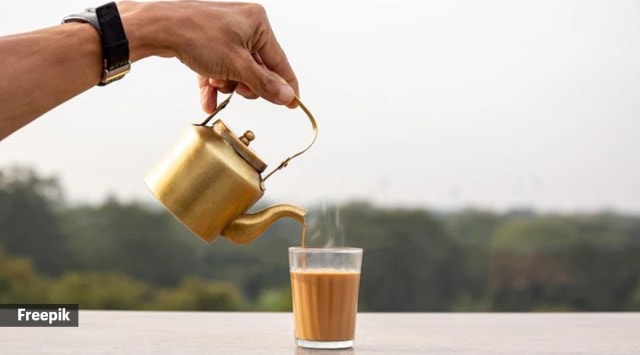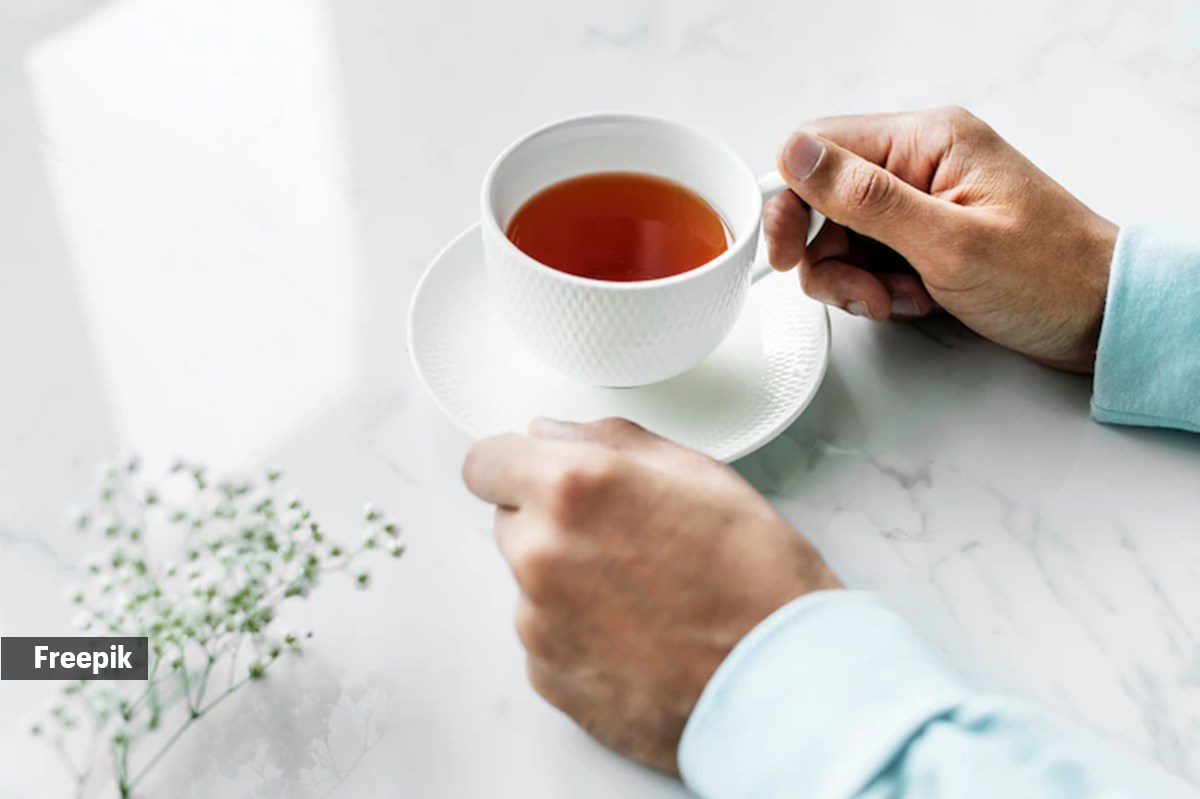📣 For more lifestyle news, click here to join our WhatsApp Channel and also follow us on Instagram
What happens to the body when you give up tea for a month?
According to Richa Anand, chief dietician, Dr LH Hiranandani Hospital, Powai, Mumbai, effects of leaving tea for a month can result in healthy changes in the body like reduced caffeine intake, which can help in sound and improved sleep, and less anxiety
 While there's no harm sipping a cup of tea once in a while, excessive consumption of it can lead to long-term health complications. (Source: Freepik)
While there's no harm sipping a cup of tea once in a while, excessive consumption of it can lead to long-term health complications. (Source: Freepik) One thing that unites Indians across the world is their love for tea. If you can’t live without your daily cup of tea, you’re not alone. For many of us, chai or tea is our favourite way to kickstart the day and gives us the much-needed boost of energy to pull through a long day at work. While there’s no harm in sipping a cup of tea once in a while, excessive consumption of it can lead to long-term health complications.
In such a scenario, is it advisable to remove tea from our diet completely? Additionally, what changes can occur in the body if we give up tea for a month? To answer all these questions, we reached out to experts to find out.
Potential benefits of a tea-free diet
According to Richa Anand, chief dietician, Dr LH Hiranandani Hospital, Powai, Mumbai, effects of leaving tea for a month can result in healthy changes in the body like reduced caffeine intake, which can help in sound and improved sleep, and less anxiety.
Additionally, she said that when tea is consumed in large quantities, it can have mild diuretic effects, so quitting tea will help in improving dehydration issues.
Similarly, Dr Kamal Palia, nutritionist and chief dietician, Ruby Hall Clinic, Pune said that leaving tea can reduce free radicals in the body, thereby promoting cellular health. This can help prevent digestive diseases and certain forms of cancer.
Cons of cutting off tea from your diet
For some individuals consuming tea gives them comfort and relaxation, so as per Anand, quitting it might lead to psychological changes such as loss of comfort and satisfaction.
Concurring, Mugdha Pradhan, functional nutritionist, CEO and founder, iThrive said, “If you’re a regular tea drinker and you quit tea, you will experience some caffeine withdrawal — the severity and duration vary from person to person. Typical symptoms include fatigue, brain fog, lack of focus, sleepiness, and headaches.” However, she added that this lasts for a few days usually until the body acclimatises to the reduced caffeine levels.
Substitutes of tea
 Certain individuals should exercise caution or avoid drinking tea due to its potential adverse effects. (Source: Freepik)
Certain individuals should exercise caution or avoid drinking tea due to its potential adverse effects. (Source: Freepik)
If you’re planning to cut off tea from your diet, Dr Palia suggested some alternatives one can substitute tea with, such as herbal infusions, fruit juices, or simply plain hot water.
“Herbal infusions like chamomile or peppermint offer caffeine-free options with unique flavours and potential health benefits. Fruit juices, particularly those that are naturally caffeine-free like apple or cranberry, can provide a refreshing cold beverage. Moreover, plain hot water with added lemon or honey can mimic the warmth and comfort of tea without the specific flavour,” she said.
However, Dr Palia noted that certain individuals should exercise caution or avoid drinking tea due to its potential adverse effects.
“People with sensitive stomachs or acid reflux may experience worsened symptoms due to the caffeine and tannins in tea. Pregnant or breastfeeding women should moderate their caffeine intake as excessive consumption could affect foetal development or be passed to infants through breast milk. Those with iron-deficiency anemia should be cautious as tea’s tannins can hinder iron absorption. Additionally, individuals with certain medical conditions such as anxiety disorders or heart arrhythmias, should monitor their caffeine intake,” she said.
Concluding, Pradhan said that ultimately, it is your bio-individuality which determines how much and how often you should consume it for the best effects. It is best to consult a healthcare professional for personalised guidance based on individual health considerations.
📣 For more lifestyle news, follow us on Instagram | Twitter | Facebook and don’t miss out on the latest updates!
📣 For more lifestyle news, click here to join our WhatsApp Channel and also follow us on Instagram
- 01
- 02
- 03
- 04
- 05



























